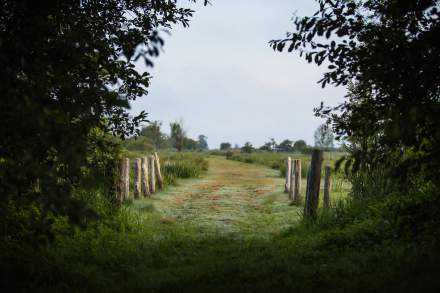
Activities
near La Mare Aux Oiseaux Hotel
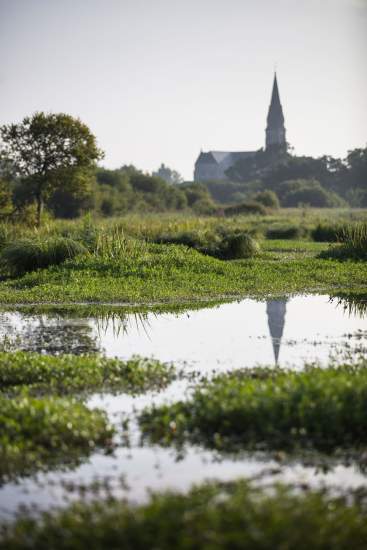
The Brière marshland: 10,000 years of inspiring history
Listen carefully to hear the Brière marshes’ 10,000 years of history, from their original Neolithic landscapes, with menhirs, dolmens and fossilised oak trees (known locally as morta) buried in the peat, to today’s breathtaking panoramic views.
The Brière marshes are one of the largest marshlands in France. Fed by the Loire, with its alluvial deposits forming dykes, it is made up of almost 50,000 hectares of peat bogs, canals, flooded meadows, hedged farmland and reed beds which are home to a thriving ecosystem.
Wherever you look, you’ll find birds, fish, crayfish, amphibians and unusual plant species.
Teeming with rare biodiversity, the Brière marshland is a protected area which can only be explored by barge, on foot or by bike.
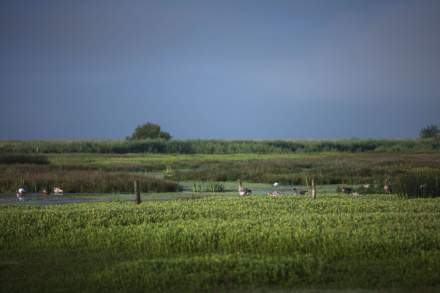
In the morning, the mist shrouds its beauty, before revealing a mosaic of peat marshes and strips of land where local residents have built their thatched cottages.
Reeds are used to cover thatched roofs and peat is used as fuel and in gardening. Due to the natural abundance of peat here, the Brière marshland is also known locally as the Black Country.
Right in the heart of the Regional Nature Park, the municipality of Saint-Joachim straddles 7 small islands: Fédrun, Pendille, Aignac, Bais, Brécun, Mazun and Ménac.
To better understand just how unique this natural wonder is, just moments from the Atlantic Ocean, a visit to each and every island is undoubtedly in order.
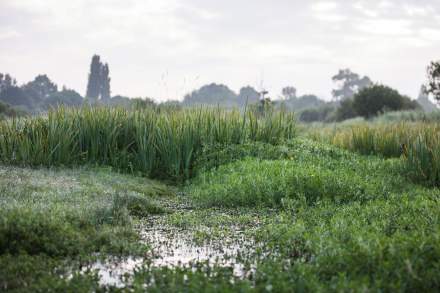
A paradise for birdwatchers, fishermen, wildlife enthusiasts, poets and painters and epicureans of all persuasions, the Brière marshland makes a life-long impression. Whether you come here to switch off or to reconnect, for contemplation or inspiration, there’s something magical about this unspoilt and ageless land.
For those interested in a sunset or a sunrise excursion or a picnic by the water, ask at La Mare aux Oiseaux’s reception desk to organise your barge tour of the Brière marshes.
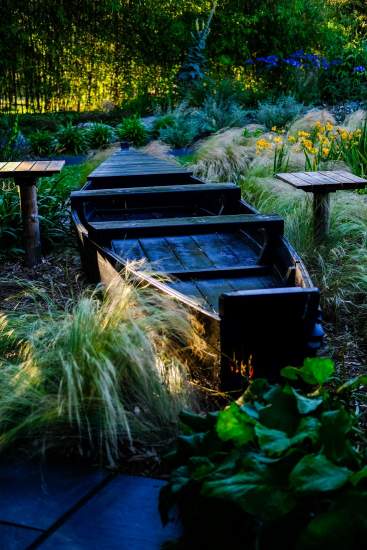
Activities in Loire-Atlantique

Explore the marshes of Brière by barge (flat-bottomed boat) with a guide. This round trip leaves from La Mare aux Oiseaux’s jetty, at the bottom of the garden.
Ask at reception for more information
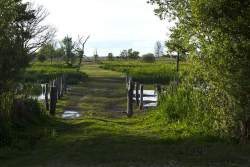
Explore the Brière Regional Nature Park on foot, by bike or on horseback, on your own or with a guide, and marvel at the diversity and fragility of this stunning landscape.
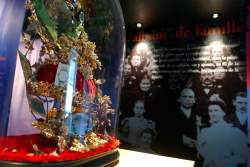
The Musée de la Mariée on the Île de Fédrun recounts the history of the workshops which created traditional waxed flowers, wreaths and glass domes for weddings in Saint-Joachim.
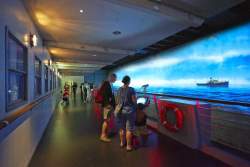
Follow in the footsteps of previous passengers and learn about the amazing history of transatlantic liners. With collectors’ items, an authentic on-board atmosphere and multimedia displays, enjoy a truly unique adventure.
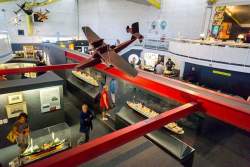
Enjoy a journey through time and the city’s history. Just a stone’s throw from the Loire estuary, the Ecomuseum explores the unique history and eventful past of Saint-Nazaire, its port and its major industries.

The Espadon sailed for 25 years and was the first French submarine to surface beyond the Arctic Circle. Since then, it has docked in the fortified lock in the port of Saint-Nazaire. Visit the submarine to find out more about its extraordinary history.
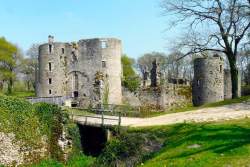
Visit the remains of the medieval château of Ranrouet, built in the 13th century to protect the Guérande peninsula. In summer, exhibitions, events and treasure hunts are organised here.
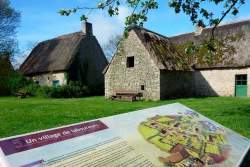
The traditional village of Kerhinet is an open-air museum with its impressive array of thatched cottages and can be visited all year round. From March to November, take the opportunity to visit the Chaumière des Saveurs et de l’Artisanat and choose from a wide range of local produce.
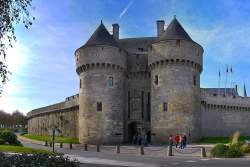
From April to October, guides from the Tourism Office organise weekly tours which recount the history of the medieval city of the Dukes of Brittany.
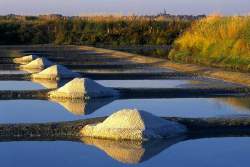
Explore the paths bordering the salt marshes by bike or on foot and marvel at this stunning place. For an in-depth guided tour to find out all the secrets of how fleur de sel is made, visit Terre de Sel.
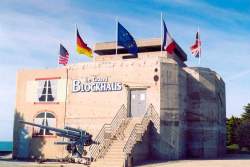
Visit an Atlantic Wall command post. Spanning 5 floors, this 300 m² building explores the history of the Saint-Nazaire Pocket, the last region of France to be liberated in 1945.

Dive into the fascinating world of the oceans. With a wide range of daily shows and entertainment, from feeding time for the penguins to a presentation of Australian sharks and divers in an underwater tunnel, there really is something for the whole family.
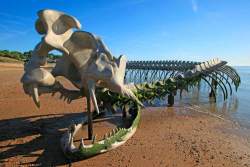
A collection of contemporary artwork in Nantes, Saint-Nazaire and along the banks of the Loire estuary between the two cities, spanning some 60 kilometres. A year-round opportunity to admire the art and appreciate the countryside whether on foot, by bike, in a car or even on a boat.

An exhibition area featuring giant articulated animals, including the famous elephant. And don’t forget to take a ride on the marine-inspired carousel, a mechanical aquarium ride for the young and the young at heart.

Relive the history of Nantes with tours of the Château des Ducs de Bretagne and its history museum. Learn more about seven key periods, from the Edict of Nantes to the major upheavals of the 20th century, colonial times and the slave trade.

A beautiful wildlife park which can be visited on safari in your own vehicle or in a 4x4 with a guide. Home to 150 species which roam freely in its grounds, it also features dolphin shows, an African area and a suspension bridge which crosses over the monkey habitat.

Puy du Fou takes visitors on a time-travelling journey, from the Middle Ages to the First World War, with spectacular shows and breathtaking entertainment.

